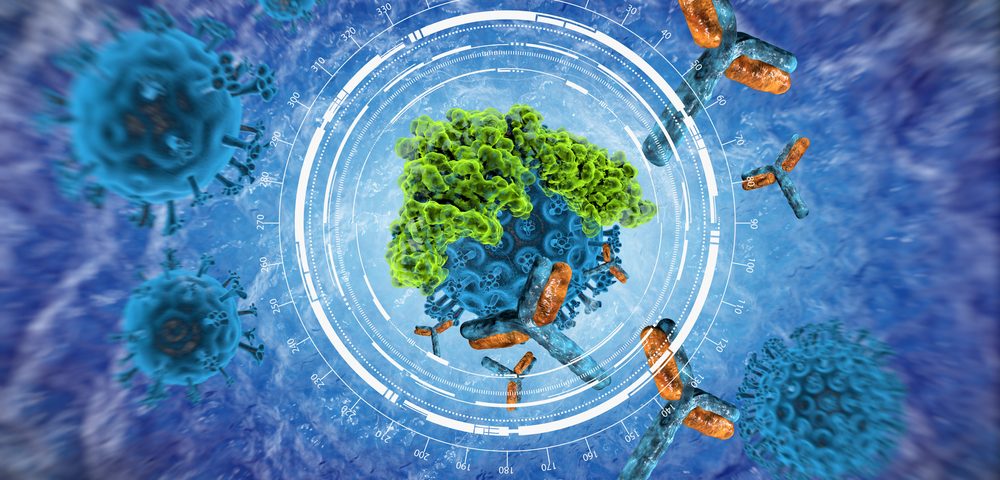The hepatitis C virus (HCV) is known to mutate to avoid recognition by antibodies, neutralizing molecules of the host’s immune system. Surprisingly, researchers found that these mutations can occur in genes unrelated to the antibody binding site in the virus.
The results are based on 113 HCV strains from 27 patients, and were reported in a study titled “Extra-epitopic hepatitis C virus polymorphisms confer resistance to broadly neutralizing antibodies by modulating binding to scavenger receptor B1,” published in the journal PloS Pathogens.
A new era of oral, direct-acting antiviral (DAA) therapies is leading to HCV eradication in most treated patients. However, viral control is still a challenge due to DDA-resistant HCV variants. Importantly, about half of infected individuals don’t have symptoms, and if they are not treated, could transmit the virus to others.
A preventive vaccine is needed to protect those at risk from future infection by HCV.
Two antibodies, called HC33.4 and AR4A, which block viral entry into human cells, have vaccine potential. Researchers tested a library of 113 HCV strains from 27 patients for their susceptibility to HC33.4 and AR4A.
Because HCV is difficult to grow in the lab, researchers created pseudo-viruses (using the contents and capsule of HIV, a virus easy to grow in the lab). These pseudo-viruses are genetically manipulated so their surfaces have the proteins from HCV and not HIV. The team then tested whether the two antibodies could prevent HCV infection in human cells.
Researchers found that the effectiveness of HC33.4 and AR4A varies considerably according to the viral strain and neutralized only 88% and 85.8% of the virus, respectively.
“We discovered that there was a lot of naturally occurring resistance, meaning we may need to greatly expand the set of viruses we use to evaluate potential vaccines,” Ramy El-Diwany, the study’s first author, said in a press release.
The team analyzed the genetic sequences of each viral strain and found that the mutated genes in resistant HCV strains were not those that code for the antibody binding site. Instead, other gene mutations unrelated to the binding site were found in viruses resistant to antibody treatment.
“These are the mutations we believe may allow the viruses to avoid being blocked by antibodies altogether,” said Justin Bailey, senior author of the study. “If you think of it like a race, the antibody is trying to bind to the virus before it can enter the cell. We think this mutation may allow the virus to get into the cell before it even encounters the immune system.”
This study reported a novel viral mechanism to escape neutralizing antibodies, helping establish a chronic HCV infection. The team also generated a large panel of HCV strains and computational gene analyses that can be used to test new vaccines in the future.

